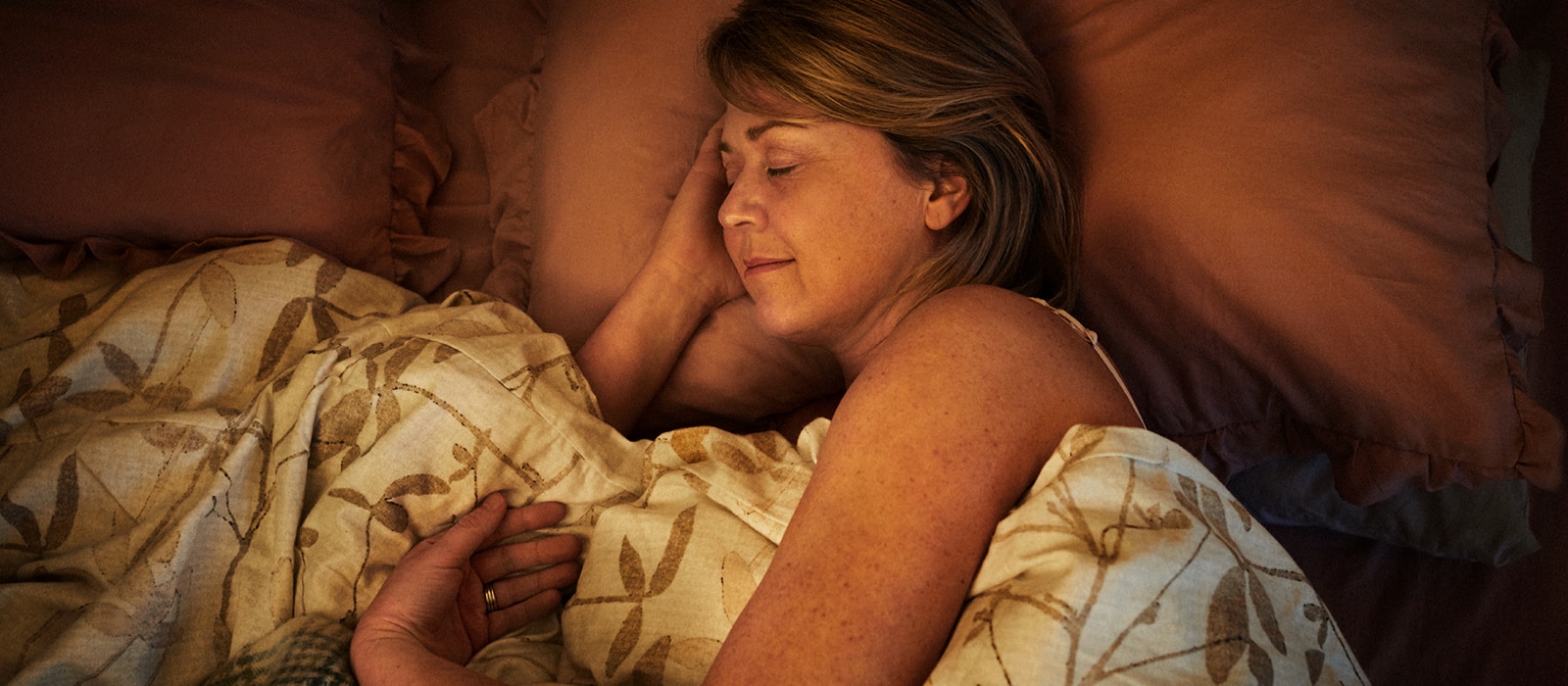Night sweats can be very uncomfortable, disrupting your sleep quality and making it difficult to get the rest you need. The cause of night sweats can often be unclear, and the occurrences erratic, which can also be a cause for anxiety. One of the major causes of night sweats is menopause, a life stage that can also lead to urinary incontinence.
As such, many women going through will be affected by night sweats and sweating at night, as well as hot flashes and urinary incontinence.
Sleep quality is a key part of maintaining your health, and even a small disturbance over a long period can have serious implications for both your mental and physical wellbeing. To help you maintain your health and reduce the disruption caused by night sweats, we’re going to look at what night sweats are, what causes them, and how to treat and prevent them.
What are menopause night sweats?
Night sweats is the term used to describe excessive sweating during night-time or sleep. For some, they can cause considerable frustration and can contribute to difficulty sleeping as well as depression, while for others night sweats may simply be an uncomfortable disruption.
Night sweats or hot flushes at night are common symptoms of menopause. However, they can also be caused by other conditions, as well as some medications.
Sweating at night is often overlooked or ignored as it isn’t an especially serious or painful symptom. But if you notice you’re experiencing them, it’s important to get checked, as they could be a sign of another health condition.
Night Sweats Causes in Women
The first thing to note is that sweating while sleeping can happen to anyone if their temperature gets too high. This is usually occasional and may just be caused by your environment being too warm, but if you’re experiencing sweating during sleep or waking up sweating, it’s likely this is a symptom of a larger issue. Menopause and night sweats are commonly associated with each other, much like hot flushes.
Other medical causes of night sweats include:
-
Infections such as TB or HIV
-
Anxiety disorders
-
Cancer
-
Hypoglycaemia
-
Hyperthyroidism
There could be other causes too. Cancer treatments like chemotherapy can lead to episodes of night sweats, while medications such as antidepressants, opioids, and hormone treatments can also be a cause.
Drug misuse or consuming too much alcohol or caffeine can also lead to night sweats.
Treatments for Night Sweats
Night sweats are most often a symptom of another issue. So, doctors will attempt to resolve the underlying cause, rather than the night sweats themselves.
1. If you’re going through menopause
To treat night sweats most doctors will recommend lifestyle changes as a first solution. Avoiding alcohol consumption and taking steps to stay cool while sleeping will be the first recommendation. If this doesn’t lead to an improvement in symptoms, hormone therapy can be offered to some women who are in the correct phase of menopause. Your doctor may also prescribe medications to help alleviate hot flushes and night sweats, such as paroxetine, gabapentin, or Venlafaxine.
2. If you’re suffering from an infection
Usually, your doctor will prescribe antibiotics, antiviral medications, or other treatments to help reduce an infection that is causing night sweats.
3. If you have an overactive thyroid
Various medications and treatments may be used to help reduce night sweats caused by an overactive thyroid.
4. If you’re experiencing anxiety
Doctors may prescribe antidepressants or anti-anxiety medication as well as therapy in this instance.
5. If you consume alcohol, drugs, and caffeine
Avoiding or reducing these substances can help reduce night sweats, and in extreme cases your doctor may offer additional support or therapy to assist with this.
How to Prevent Night Sweats
As with many health issues, prevention is often better than a cure, and there are several things you can try to help prevent night sweats from happening, such as:
-
Sleeping in a cooler environment and wearing lightweight pajamas
-
Using a cooling mattress to help you regulate your temperature more easily
-
Plugging in a fan at night
-
Reducing weight or maintaining a moderate weight
-
Mind body therapies, like meditation and guided imagery, to relax
-
Limiting alcohol and caffeine intake
-
Avoiding drugs, including tobacco
-
Avoiding spicy foods
Outlook
While night sweats can be frustrating and cause a lot of disruption to your sleep and wellbeing, they don’t pose a serious health risk. However, they could be a sign of an underlying health concern, so even if you are experiencing menopause night sweats, seeking advice from your doctor is the best course of action in order to get some relief, especially if your sleep quality is suffering.
You can get more advice from TENA on everything menopause related, as well as protecting your mental health during this stage of life.
Aside from night sweats, you may also find yourself experiencing urinary incontinence if you’re currently going through the – at TENA, we offer a whole host of different products, from bladder leakage pads and pants to washable underwear.

